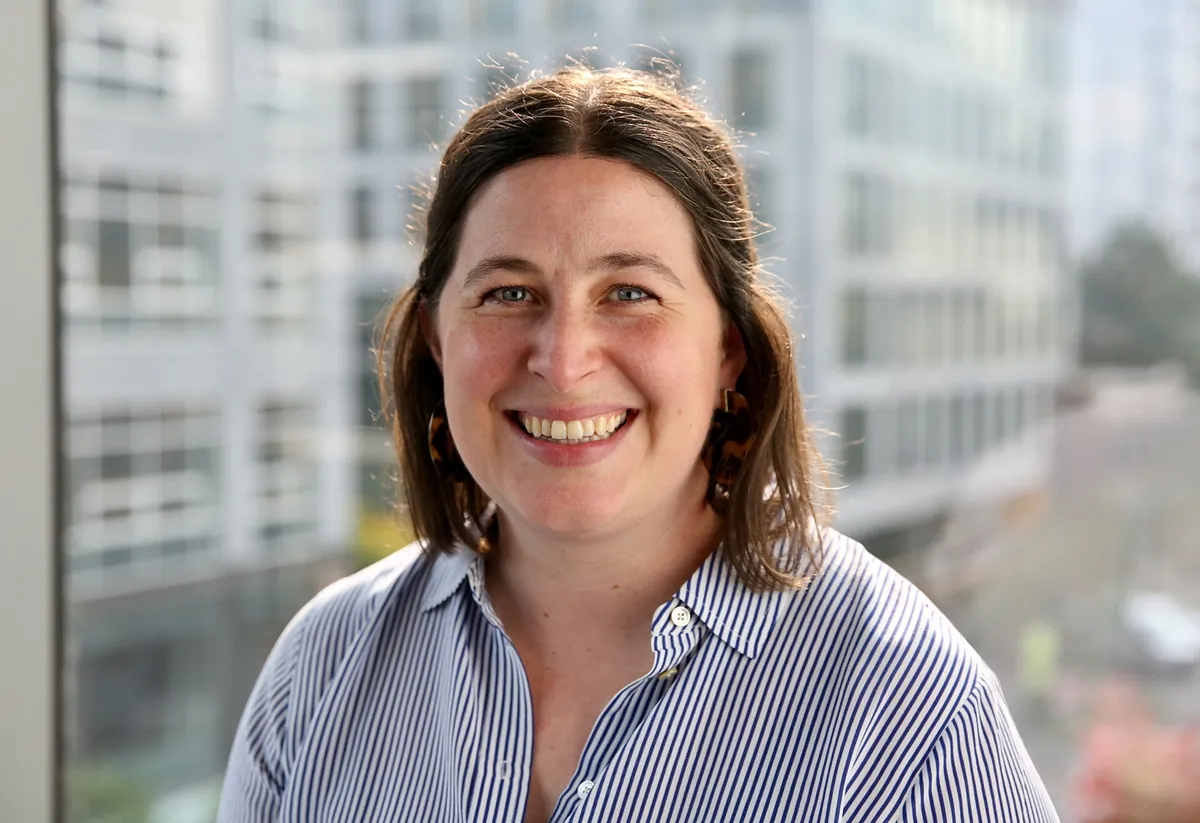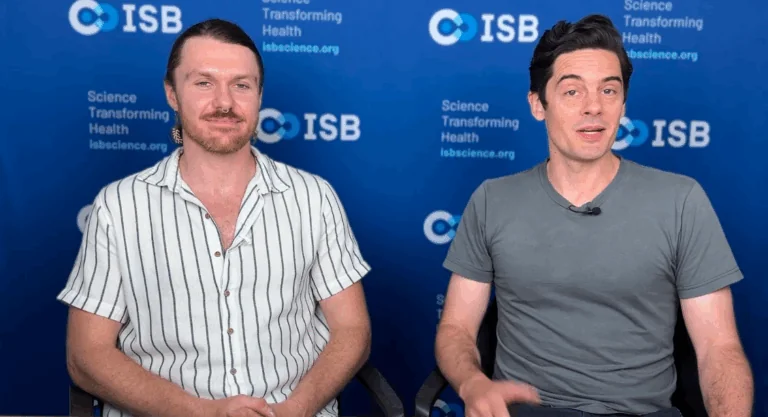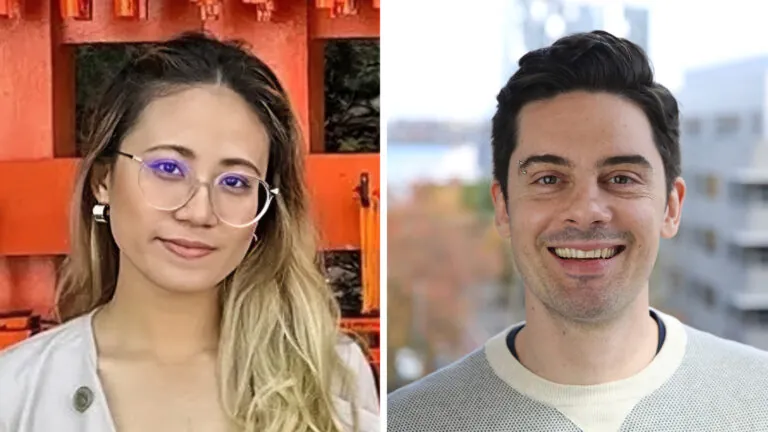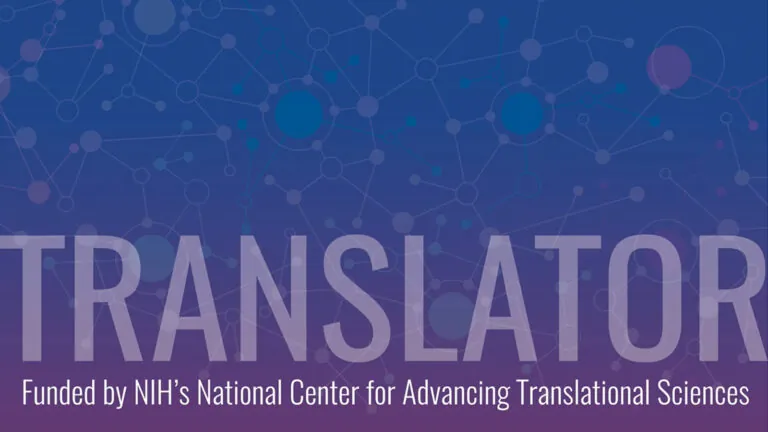Dr. Alice Kane Joins ISB as Ling/Obrzut Assistant Professor
ISB is excited to announce the arrival of our newest faculty member, Ling/Obrzut Assistant Professor Dr. Alice Kane. The Kane Lab will investigate the biological determinants of frailty in both males and females. In this Q&A, she discusses her research to date, her areas of interest, and much more.

ISB is excited to announce the arrival of our newest faculty member, Ling/Obrzut Assistant Professor Dr. Alice Kane. Her lab will investigate the biological determinants of frailty in both males and females.
Following is a Q&A with Kane that delves into her research career to date, her research areas of interest, and much more.
ISB: Welcome to ISB, and congratulations on being named Ling/Obrzut Assistant Professor. What does this appointment mean to you?
Alice Kane: Thank you! I am honored to be joining the ISB community. I have been working toward this role for over 10 years, and I am very excited (and a little nervous!) to be finally starting this next step. And I couldn’t think of a better place to be taking this step than at ISB!
ISB: How do you describe your work to non-scientists?
Kane: I am interested in understanding why there is such variability as we age – how we can have two people both 80 years of age in terms of the number of birthdays they have had, but with extremely different levels of health, function and independence.
I want to understand how to quantify this variability in aging by using better metrics than number of birthdays, and predict early on in life who is likely to age well and who may not, and importantly see whether there are any interventions that can maximize function and health in individuals as we age.
I am particularly interested in understanding sex differences in aging as well – given that the vast majority of research in aging has been done only in males, we have some catching up to do to optimize aging research for both sexes.
ISB: How do you think the aging/frailty research landscape might change in the next 10 years? How has it changed over the past decade?
Kane: The aging/frailty research field has changed immensely over the past decade. The biology of aging used to be considered a niche – almost weird – area of research. But now we are seeing massive growth in the amount of funding, interest and people in this field.
We still know so little about the aging process. There is so much still to discover! Over the next 10 years, I think we can expect to see growth in systems biology investigations of aging – maybe I’m biased 🙂 – as well as personalized medicine approaches to testing, delaying and optimizing aging as people begin to track their own health metrics with their smart devices.
I think we can also expect to see huge growth in clinical trials of “aging” interventions, as more people realize that the decline that typically accompanies aging is not, in fact, inevitable.
ISB: What is involved in starting the Kane Lab, and what research project (or projects) are you most excited to get started on?
Kane: My first big task is to hire researchers to build out the team. I am looking forward to finding and working with others who are passionate about frailty to make new discoveries! While I am setting up the lab and mouse colonies, I will start with some computational work – I have a large longitudinal data set of measures from very well characterized and phenotyped aging mice that I am excited to dive into. This unique data will allow us to look at what changes over the lifespan in individual mice, in order to predict age and health, and to see how decline in certain systems affects others within individual mice.
ISB: Your academic career has taken you from Sydney to Halifax, Nova Scotia to Boston and now to Seattle. What are your experiences in these varied geographic regions? In your limited time thus far in the Pacific Northwest, what are your takeaways?
Kane: One of the things I love about academia is that it has allowed us (my husband Sam and I) to live in some incredible places, and make friends all over the world. In Halifax, we took up curling, embraced walking to work in the snow, and enjoyed the stereotypical Canadian friendliness. In Boston, we ate a lot of lobster rolls and enjoyed camping and skiing across New England. So far, I love Seattle – the food, beer, coffee, outdoor areas, mountain views. In many ways it actually reminds me of Sydney!
ISB: What are your allegiances? For example, what happens when the Boston Red Sox play the Seattle Mariners or the New England Patriots play the Seattle Seahawks?
Kane: I am not a huge sports person, but I think the correct answer is definitely, “Go Mariners!” and “Go Seahawks!”
ISB: What do you do when you’re not in the lab?
Kane: I have a beautiful 4-month-old daughter, Matilda (Tillie), so nowadays she takes most of my non-work time! We play and go for walks and the occasional brewery or coffee shop visit. I also love to read, listen to podcasts, cook and travel!
ISB: What is the last book you read? What is the last movie you watched?
Kane: Last movie was “Everything Everywhere All At Once” – loved it! Last book was “Cloud Cuckoo Land” – also great!
ISB: Any hidden skills or talents you want to share?
Kane: I am fairly crafty. I handmade a quilt over COVID that Matilda now uses as a playmat!
To learn more about Dr. Alice Kane and the Kane Lab, please check out her biography and lab overview page.
We thank ISB board member Dan Ling and his partner, Lee Obrzut, who made a generous gift in support of Dr. Kane’s research into aging and frailty.


